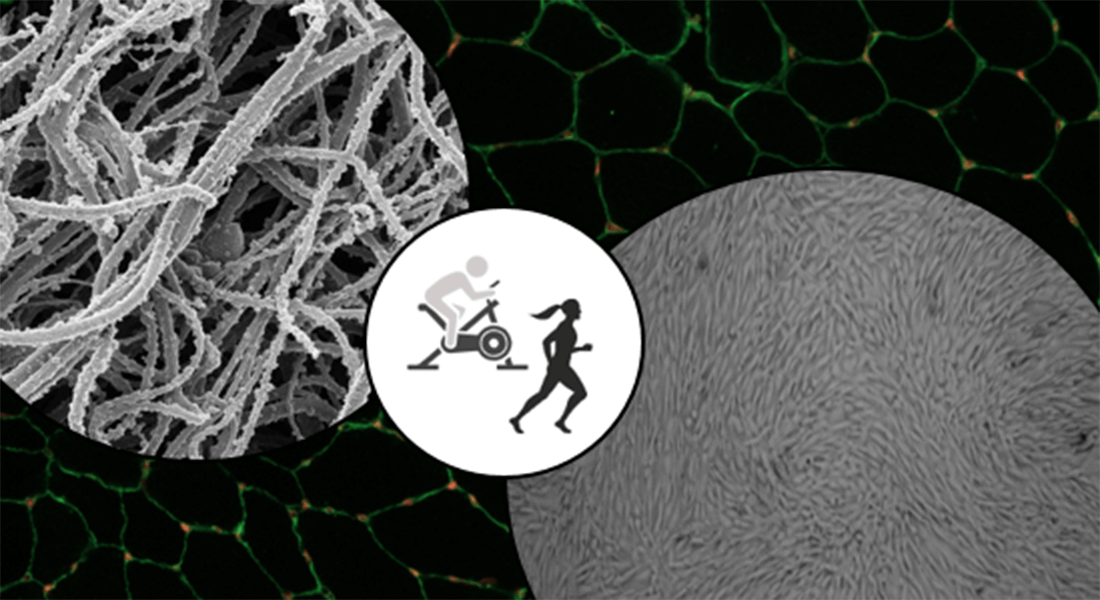PhD defence: Acute and chronic effects of aerobic exercise on thrombotic risk and endothelial function in older adults

Line Boel Nørregaard
PhD thesis
The primary aim of the thesis was to evaluate the effect of aerobic exercise training and of acute exercise on thrombogenicity and factors affecting thrombogenicity in healthy and diseased cohorts.
To address this aim we conduced two studies; one study in which healthy recent postmenopausal females (≤ 5 years post menopause) and late postmenopausal females (≥ 10 years post menopause) completed eight weeks of high-intensity exercise training and one study in which lacunar stroke patients and healthy elderly individuals completed one bout of acute exercise.
The two studies allowed for an examination of the effect of exercise on the novel biomarker for clot microstructure and platelet reactivity. Focus in the study on the recent and late postmenopausal females was also on the impact of exercise training on properties of isolated muscle microvascular endothelial cells, vascular function and angiogenesis.
The main findings of this thesis were that eight weeks of high-intensity exercise training led to reduced clot microstructure and platelet reactivity, indicating a reduced susceptibility to thrombosis, in recent postmenopausal females only (Study I).
In addition, exercise training led to increased glycolysis and a decreased production of reactive oxygen species per respiration in microvascular endothelial cells derived from skeletal muscle biopsies of recent postmenopausal females only (Study I).
Vascular function and skeletal muscle capillarization remained unaltered with exercise training in both groups (Study I).
Both lacunar stroke patients and healthy elderly individuals showed an increase in thrombogenicity in response to acute exercise, however at rest the thrombotic risk was higher in the stroke patients compared to the healthy elderly individuals (Study II).
The thesis concluded that initiation of regular exercise training appears to induce more prominent adaptations in the cardiovascular system if initiated soon after, rather than many years after menopause.
Additionally, it was concluded that despite a similar exercise induced increase in thrombogenicity in stroke patients and controls, acute exercise might be associated with a greater risk of thrombosis in stroke patients due to the higher resting thrombogenicity.
Download Table of contents; List of relevant papers; Abstract; Danish summary.
2024, 164 pages.
Time
11 April 2024, 14:00
Venue
Auditorium 1, August Krogh Building, Universitetsparken 13, DK-2100 Copenhagen, Denmark.
Opponents
Professor Erik Richter (chair), Department of Nutrition, Exercise and Sports, University of Copenhagen, Denmark.
Professor Kerrie Moreau, Department of Medicine, Division of Geriatric Medicine, University of Colorado School of Medicine, Aurora, Colorado, United States.
Director Michael Nyberg, Vascular Biology, Novo Nordisk, Måløv, Denmark.
Main supervisor
Professor Jens Bangsbo, The August Krogh Section for Human Physiology, Department of Nutrition, Exercise and Sports, Faculty of Science, University of Copenhagen, Denmark.
Co supervisor
Professor Ylva Hellsten, The August Krogh Section for Human Physiology, Department of Nutrition, Exercise and Sports, University of Copenhagen, Denmark.
